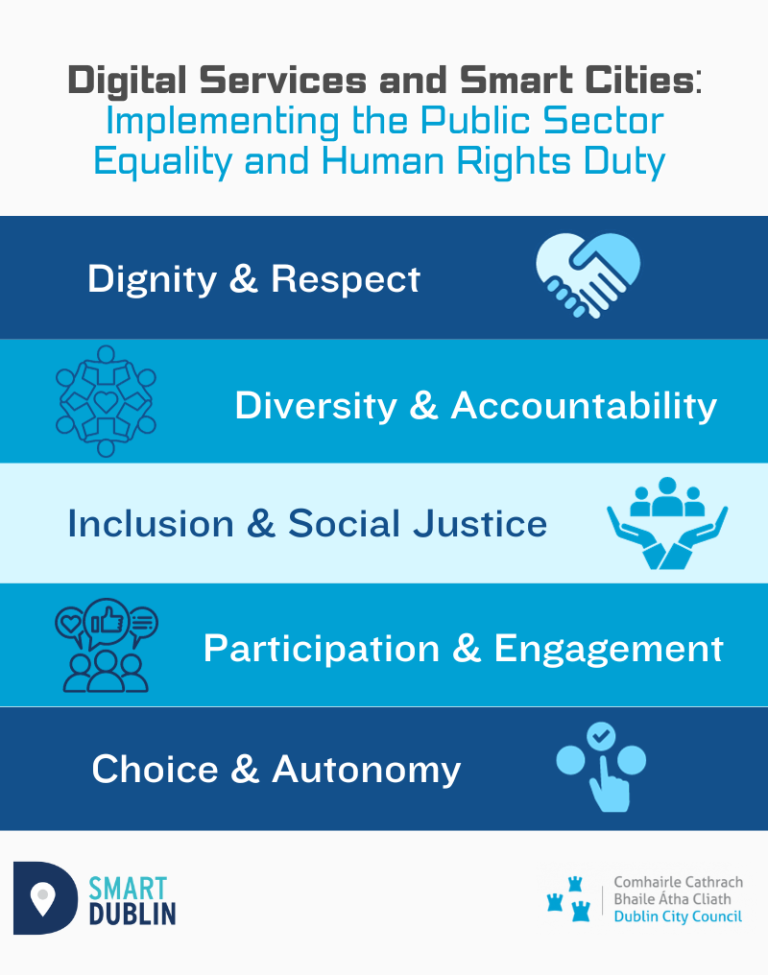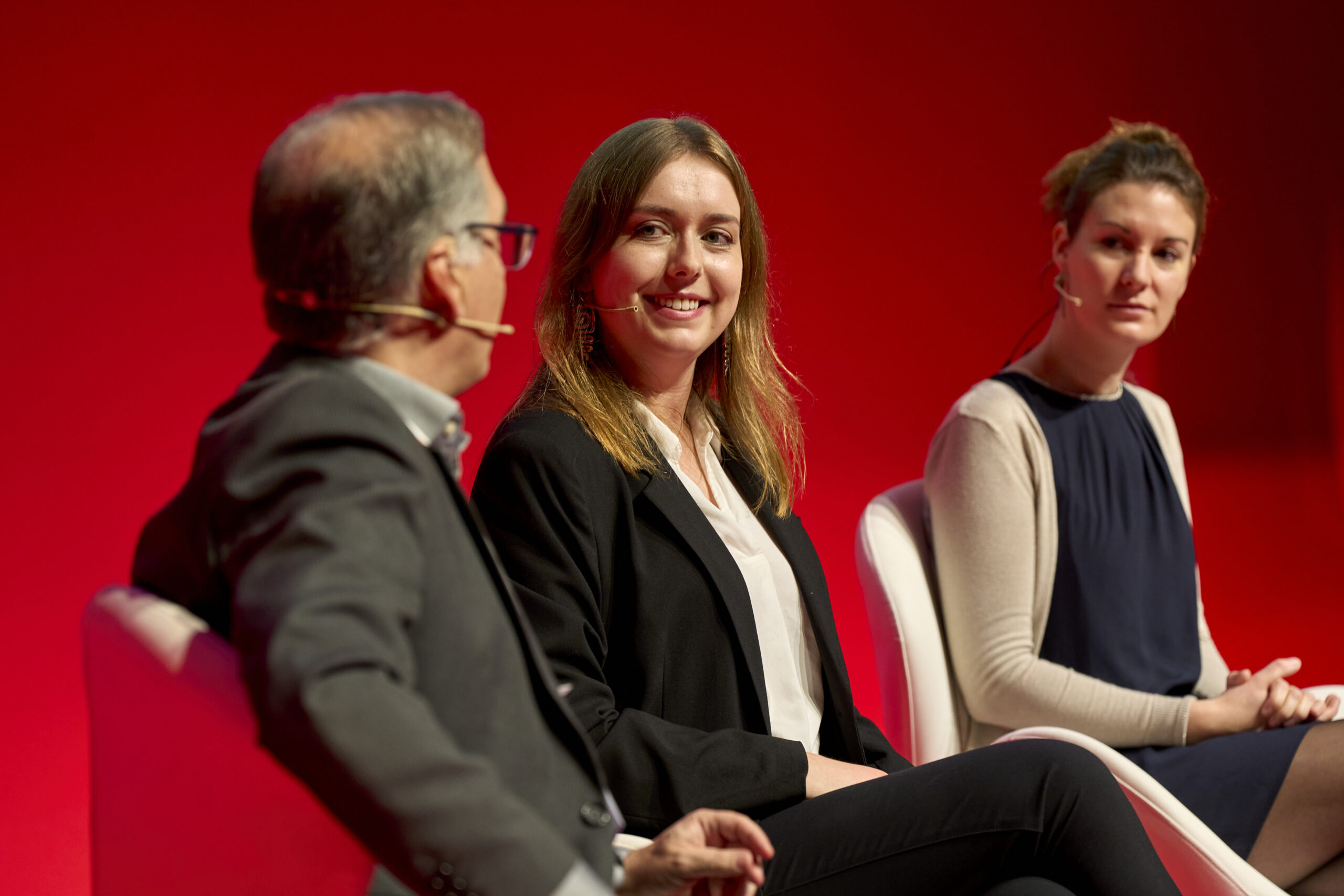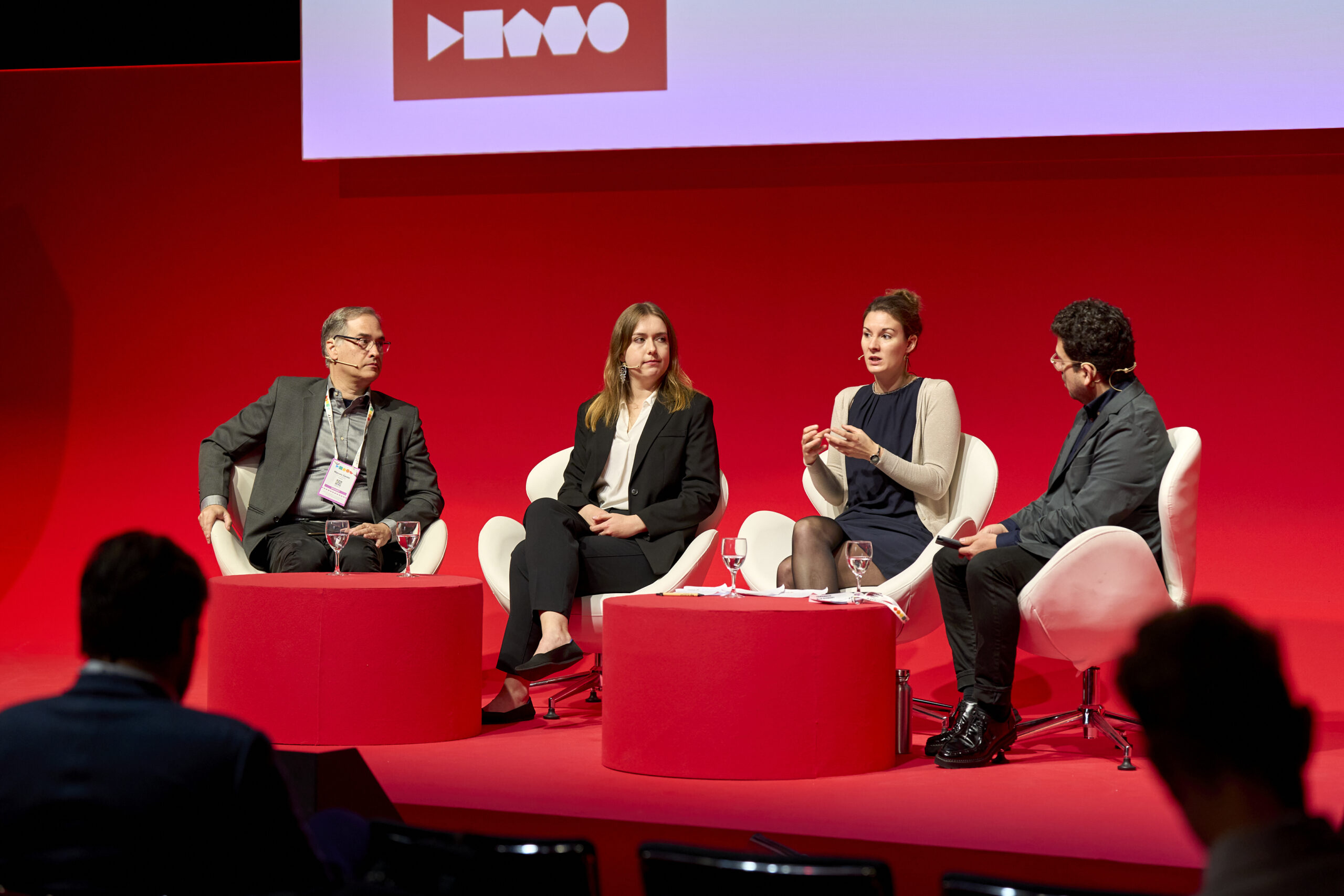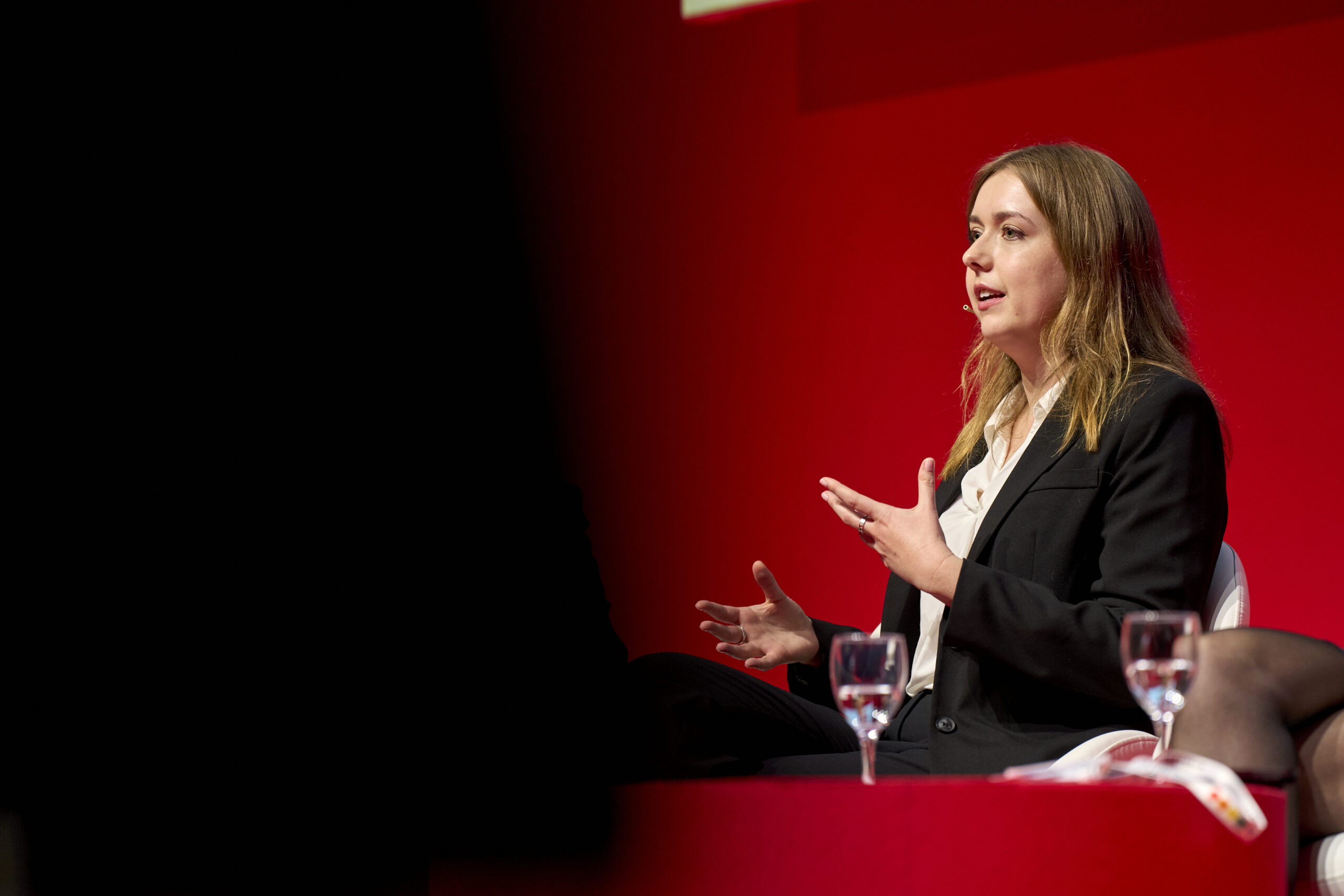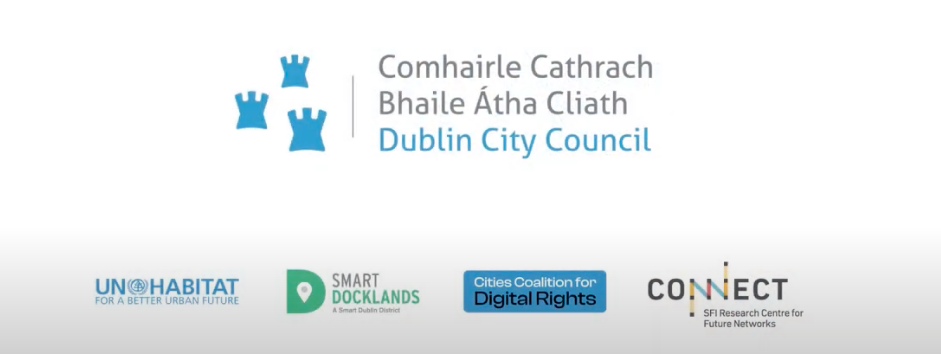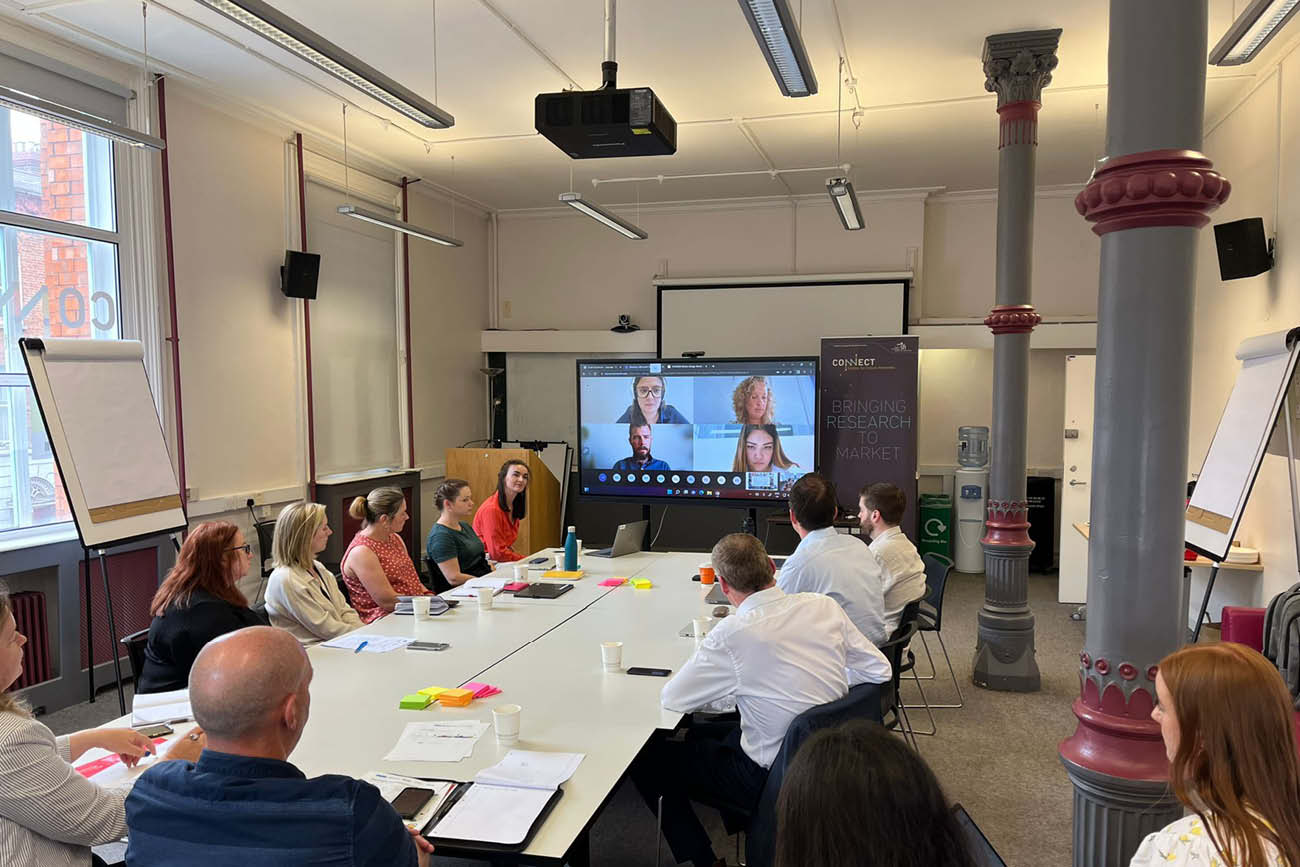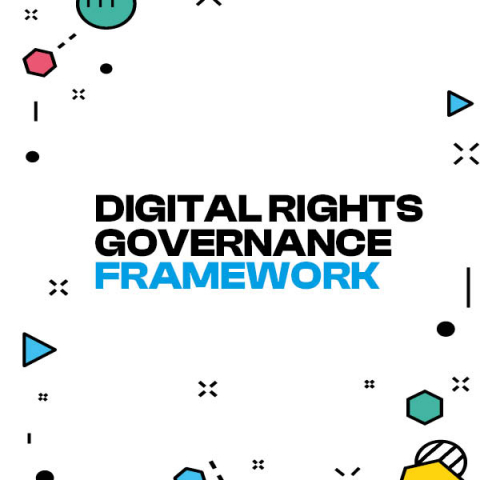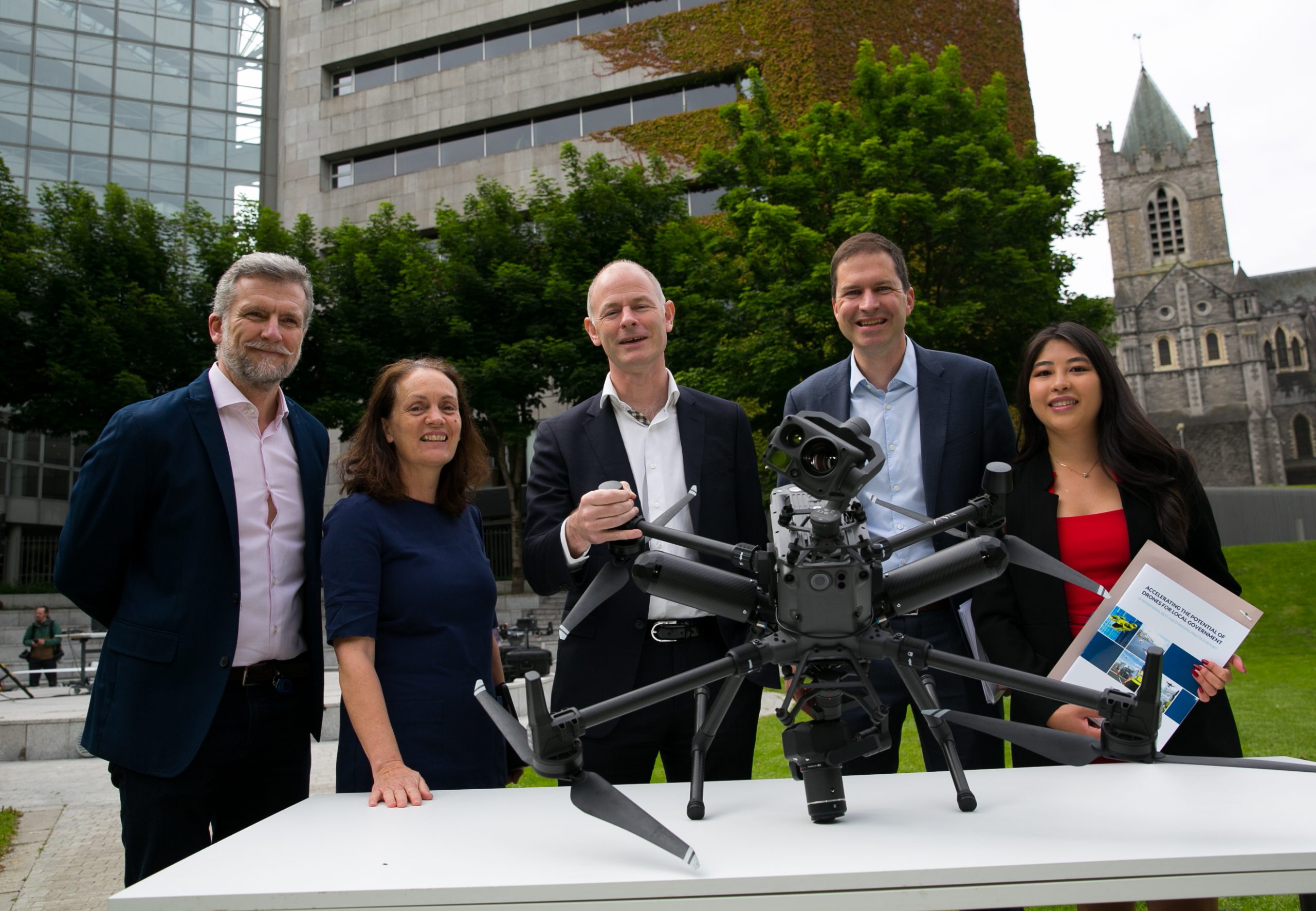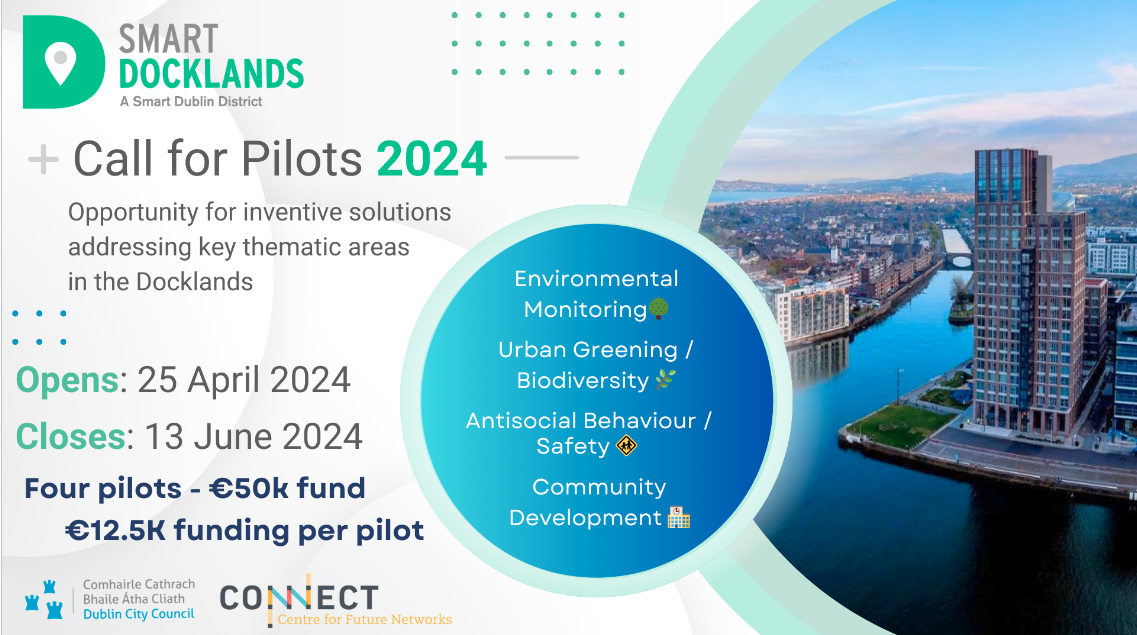
** CALL NOW CLOSED – 13 JUNE 2024 **
Smart Docklands supports the adoption of new and emerging technologies in cities. The programme fast tracks innovation that addresses local and global challenges through collaboration, testing, learning, and education. The programme successfully facilitates and enables the testing and trialling of smart city solutions by identifying local challenges, shaping the future of cities. In 2024, this engagement and facilitation will continue with an open call for pilots from a €50k funding pool. Please find an articulation of the call themes and application details below and contact info@smartdocklands.ie with any additional queries.
Continuing to focus on the deployment of IoT solutions across multiple environments, this call will focus on four key themes. The themes were selected from feedback gathered through the Smart Docklands Commonplace online surveys and other outreach activities with stakeholders including residents, local communities, Dublin City Council, Connect SFI Research Centre, businesses located in the Docklands and their employees. The purpose of the engagement was to identify local challenges and launch an open call for pilots to find potential solutions to address these challenges. The four key themes identified are:
- Urban greening/Biodiversity
- Antisocial behaviour/Safety
The call seeks to support the development of impactful, scalable and sustainable pilots involving public bodies, private stakeholders, academia and local communities. The pilot proposals should be ready to deploy with service users, where appropriate, and should be in a position to measure impacts within a six-month timeframe.
To apply please submit your proposal here by Thursday, June 13th at 5pm.
Applicants can apply for more than one call. If your institution cannot access Google Forms via a Google account, you can access the Pilot Application Template, with submission instructions, here.
Smart Docklands Pilot Call Themes:
Some examples of the types of pilots/topics which could be relevant for this call are given here for illustrative purposes. The listed themes have been identified after our recent community engagement surveys (view results here) and align with our existing initiatives and projects.
Environmental monitoring
Proposals may include, but are not limited to solutions that:
- Provide real-time air quality monitoring in urban environments
- Combine sensors and data analytics to enhance air quality management in both indoor and outdoor environments
- Leverage various technologies to help with the overall management and engagement with the River Liffey and to promote the use of the waterways for tourism, leisure and cultural activities, as an integral part of Dublin’s Docklands,
- Provide IoT-enabled devices for real-time monitoring of water quality in urban areas
- Address challenges related to water pollution and ensure the sustainability of water resources
- Enhance resilience against water-related challenges for urban planning, such as flooding
- Contribute to climate adaptation and sustainable water management
Urban greening/Biodiversity:
Proposals may include, but are not limited to solutions that:
- Deploy IoT technologies, where appropriate, to create and maintain smart urban green spaces
- Enhance the overall management and sustainability of urban green areas using IoT and data analytics
- Leverage technology for citizen participation in biodiversity conservation and sustainable urban practices
- Deliver innovative, educational and/or awareness building programs through the use of smart city solutions that promote environmental stewardship
Antisocial Behaviour/Safety:
Proposals may include, but are not limited to solutions that:
- Encourage diverse community participation and a broad representation of perspectives, ensuring that the smart city solutions address the needs of all citizens
- Provide local communities with better knowledge in relation to smart city solutions, how they work, why they have been deployed, what the benefit/impact is; fostering trust through a more informed understanding of the technologies and encouraging future participation in pilot programs
- Develop educational initiatives to raise awareness about emerging technologies and their potential impact on urban living
- Prioritise the integration of smart city technologies that enhance public safety, emergency response coordination, and real-time monitoring of critical infrastructure
Community Development:
Proposals may include, but are not limited to solutions that:
- Develop and implement pilot initiatives that foster collaboration, awareness, drawing inspiration from successful models in schools and communities
- Build upon Smart Dockland’s existing community engagement and outreach activities, including via the Academy of the Near Future
- Help strengthen relationships with local libraries and other community hubs to enhance Smart Docklands’ integration into the fabric of the community. Explore collaboration opportunities, events, and knowledge-sharing initiatives to create a symbiotic relationship with these vital community institutions
- Introduce and support the creation of maker-space areas within Smart Docklands, fostering innovation and hands-on learning. Collaborate with local schools, community centres, and libraries to establish accessible spaces that encourage residents to explore technology, creativity, and entrepreneurship
Who Should Apply:
The pilot call is open to academia, public bodies, private organisations or local community members, who have a proposed solution that can address the challenges or themes presented above.
The proposal must:
- Offer an innovative solution (products, services or devices) with the potential to scale
- Provide new practices/solutions/perspectives that address challenges related to one of the five key themes above
- Be sufficiently developed, with a fully operational solution that is ready for deployment by September 2024
- Be within the legal remit and responsibility of Smart Dockland’s main partners operational capacity
- Ensure that any solution proposed adheres to all General Data Protection Regulations
Successful pilot leads will be required to provide Dublin City Council with up to date tax clearance information and proof of valid insurance certs. Failure to provide this information when requested may result in the exclusion of the pilot from the open call.
Why Apply?
- Opportunity to pilot and demonstrate the potential impact and scalability of the proposed solution in a real-world environment
- Access to experts from a unique ecosystem with established academic, public and private sector partners as well as an engaged local community.
- Marketing and promotional support for the proposed solution via the Smart Docklands network
- Funding of up to €12.5K (inc. of VAT) is available to support successful pilots
- Access to workspace in the Docklands are during the pilot period.
Application details:
- Call closes: 13th June 2024 5pm
- Evaluation of proposals: Your submission will be reviewed by an expert panel drawn from Smart Dockland’s partners. A shortlist of applicants will be selected and asked to make a presentation to the evaluation panel. An update on the call outcome will be provided to all applicants at the end of the review process, anticipated by 4th, July 2024
- Projects to start: September 2024
- Mid-way review: December 2024
- Final Evaluation and Close Out: March 2025
Eligibility, Evaluation & Selection Criteria:
All pilot proposals must be completed and submitted using the Pilot Application Template on or before the closing date. Proposals not submitted using the template or submitted after the deadline will not be evaluated.
All eligible proposals will be evaluated by an expert panel drawn from Smart Dockland’s partners and a shortlist of applicants will be selected and invited to present the proposed solution to the evaluation panel.
Pilot proposals will be evaluated based on the following criteria:
Successful proposals will clearly demonstrate the positive impact of the solution for the Smart Docklands area in relation to the challenges posed under the five key themes described above. Proposals must provide details on how impact will be measured.
Proposals will be evaluated on the solution’s potential for scale, the ambition for scalability and how it can be achieved, as well as potential integration with existing services. Proposals should describe the future business model.
A level of innovation in terms of technology/service will be required that addresses an unmet or underserved need. Innovation in the incremental or disruptive approach taken to advance the pilot with end-users will also be evaluated.
Proposals will be evaluated based on allocation of resources required to develop the solution, capacity to deliver, skills and qualifications of the proposed project team. Proposals will also be evaluated on the expected level of support required from relevant Smart Docklands partners and their actual capacity to support the proposal. Proposals must include a full breakdown of costs related to the proposed solution.
Proposals will be evaluated on the positive impact of the solution for people living, working, visiting or doing business in the Docklands area and how well the solution addresses the challenges identified above.
- Alignment with the objectives of Smart Docklands:
The pilot will be evaluated against both DCC and CONNECT’s objectives to fast track innovation that addresses local and global challenges through collaboration, testing, learning, and education.
About Smart Docklands:
Established in 2018, the programme is funded by Dublin City Council (DCC) and CONNECT, the Science Foundation Ireland Research Centre for Future Networks headquartered at Trinity College Dublin.
Smart Docklands is an award winning programme that supports the adoption of new and emerging technologies in cities. The programme fast tracks innovation that addresses local and global challenges through collaboration, testing, learning, and education.
The project focuses on the deployment of IoT across multiple environments, effective engagement and the opportunities and challenges associated with the future densification of telecommunication networks.
Our education and awareness building programme provides participants with the knowledge, skills, and confidence to use technology to develop solutions, by fostering creativity and citizen participation.
** CALL NOW CLOSED – 13 JUNE 2024 **

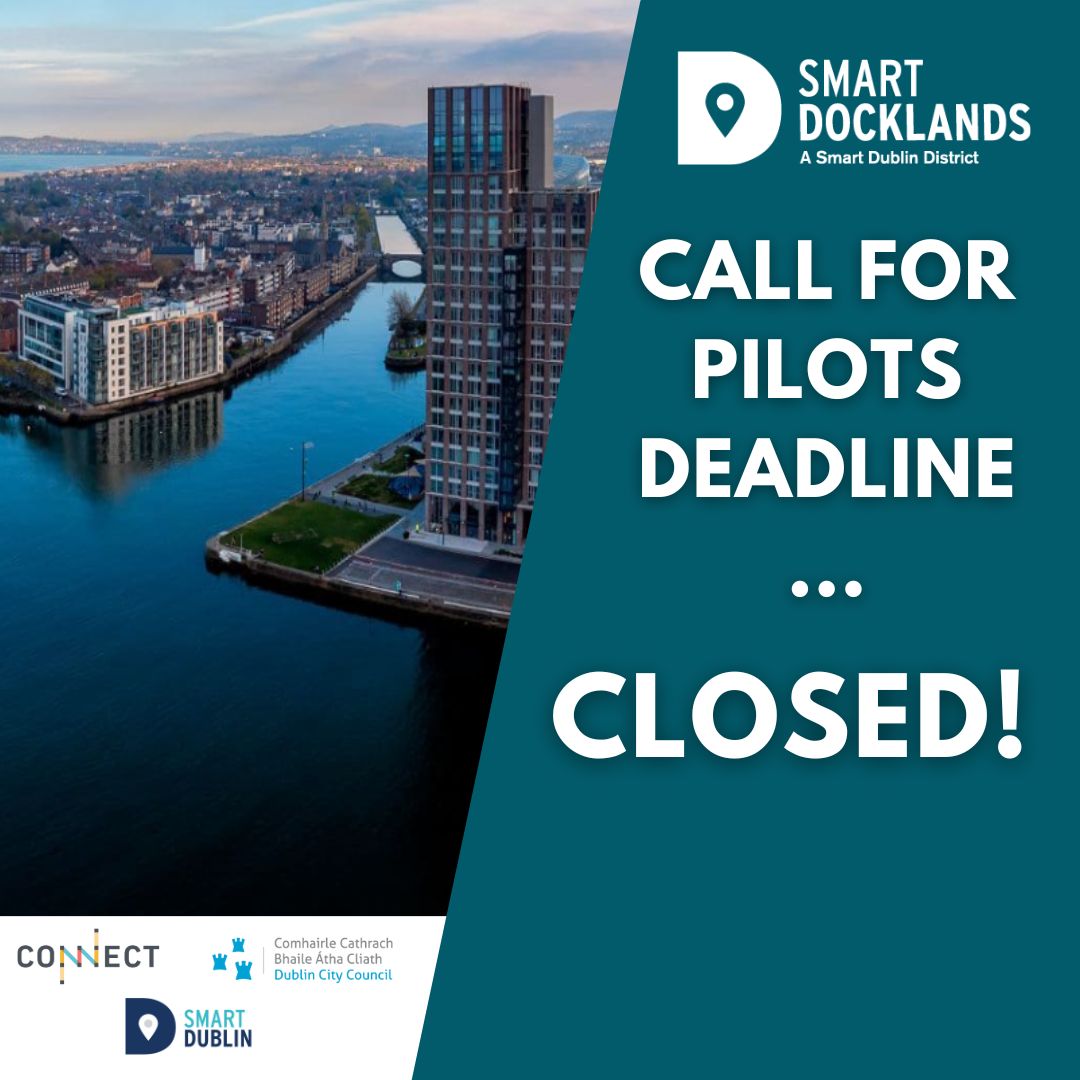
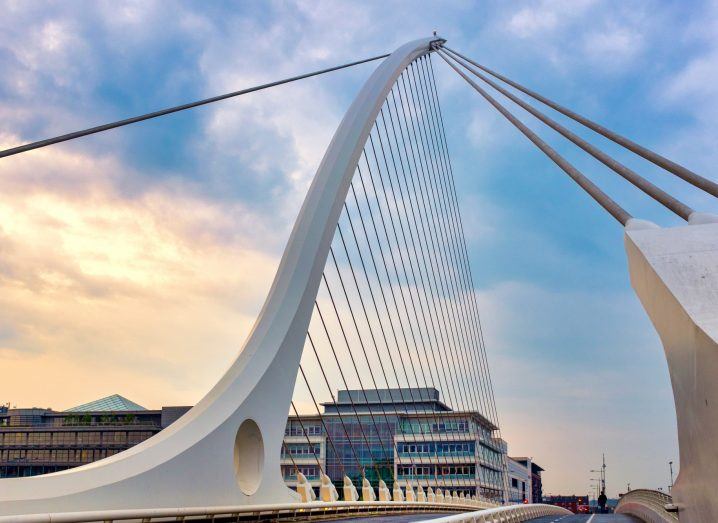


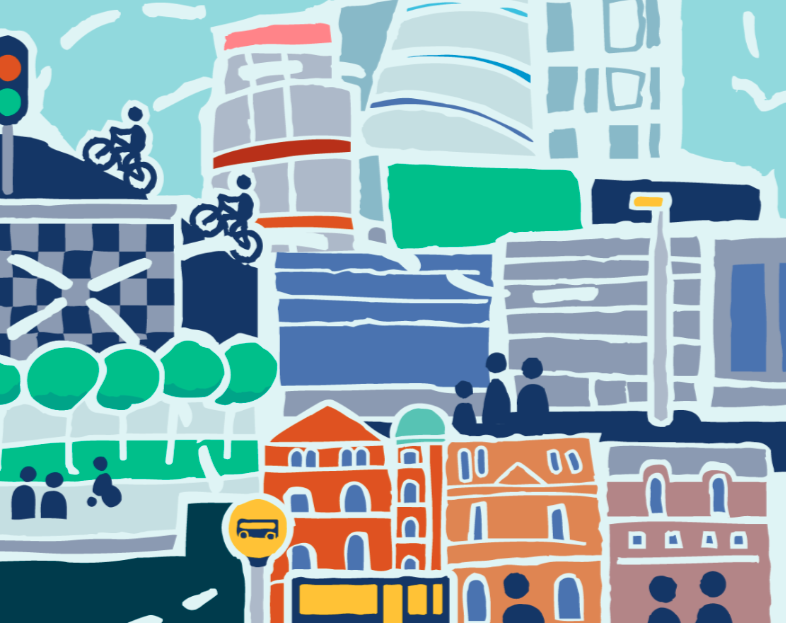
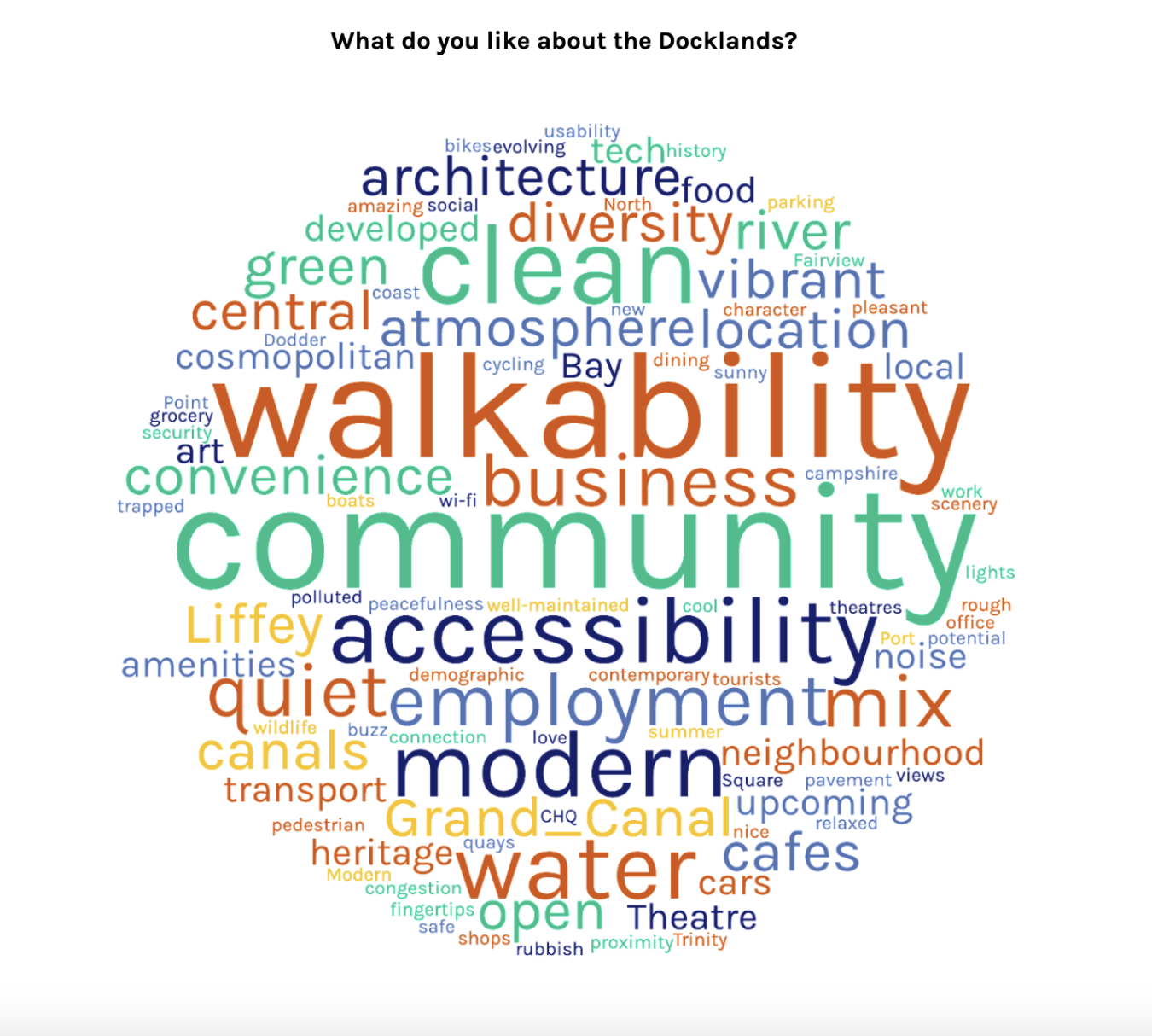
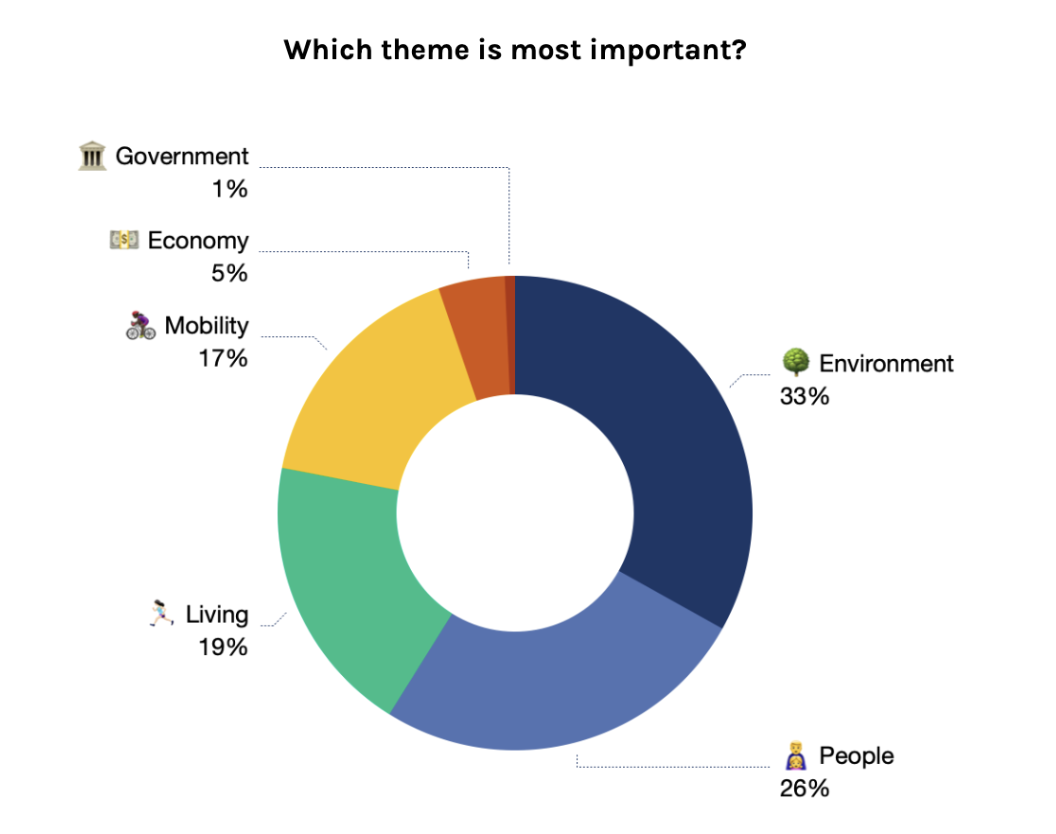
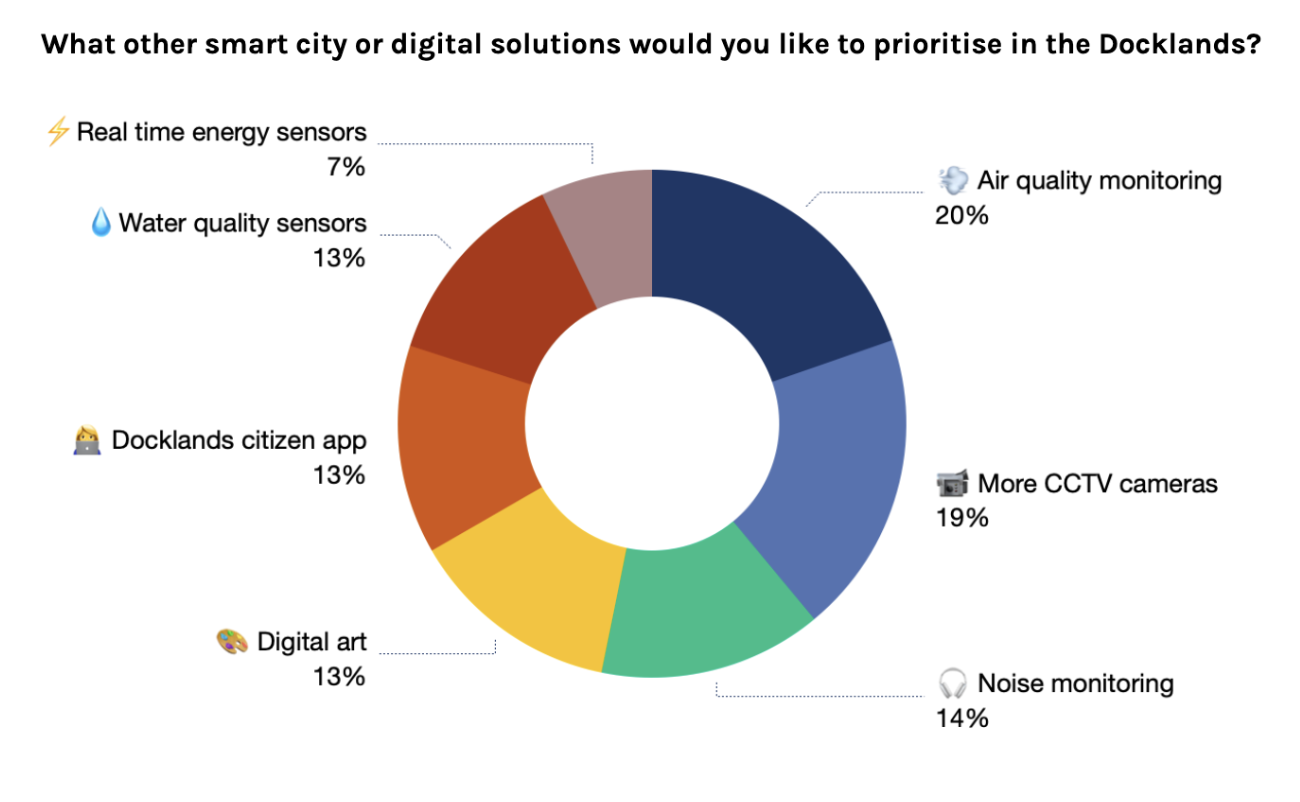
![‘expl[ai]n’ workshop – AI awareness building workshop for local authority staff](https://smartdocklands.ie/wp-content/uploads/2024/04/Screenshot-2024-04-11-at-08.59.15.png)

